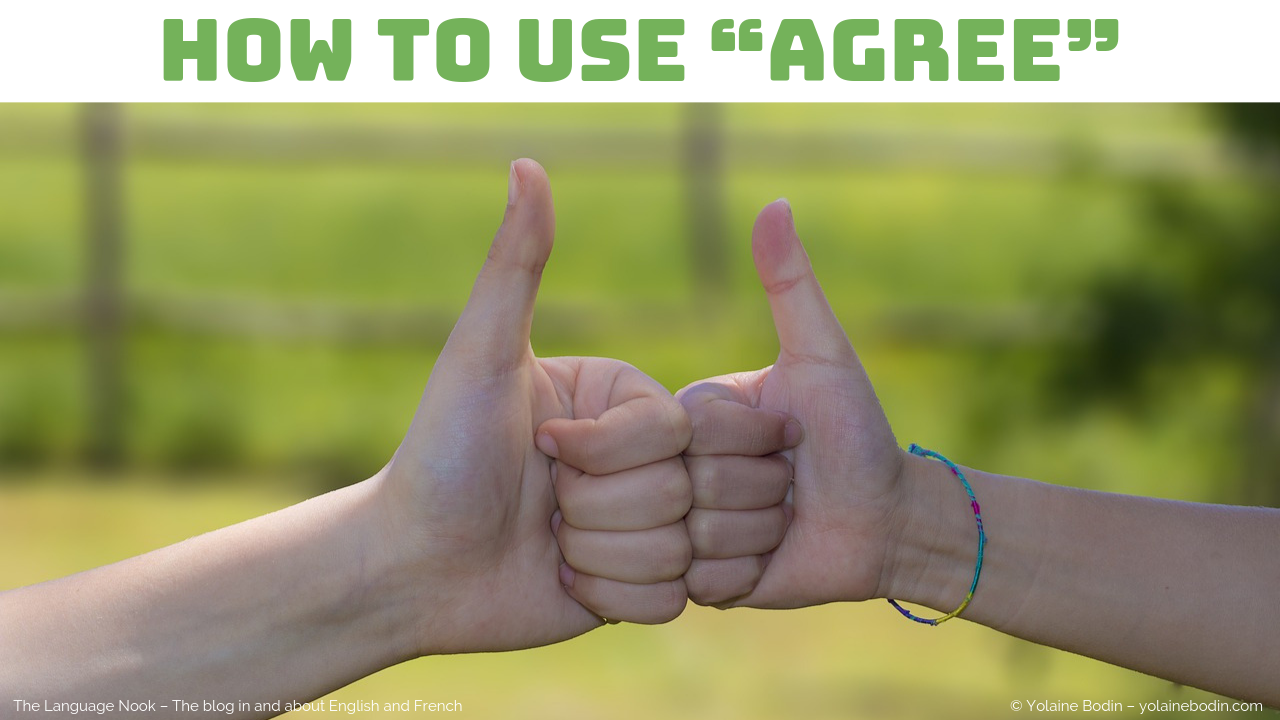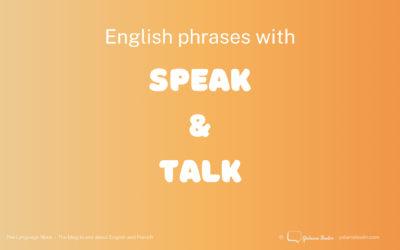The English verb to agree is a verb that is very often misused by learners of English.
Many learners say:
I’magree XAre youagree? X
This is a typical mistake made when the learner’s mother tongue normally uses the verb to be followed by the equivalent of agree but when agree is not a verb.
However, in English, agree is a verb that must be used exactly like any other verb.
Compare:
- Positive sentence: You speak English. She speaks French.
- Negative sentence: You don’t speak English. She doesn’t speak French.
- Question: Do you speak English? Does she speak French?
with
- Positive sentence: You agree. He agrees.
- Negative sentence: You don’t agree. He doesn’t agree.
- Question: Do you agree? Does he agree?
It means you must the verb to agree exactly in the same way as any other verb. The sentence structure remains the same!
Good to know! The verb to agree can be used with various prepositions or function words according to the context. The following examples will help you choose what word you should use after agree:
- ABOUT: to agree about something (that is being discussed) → They agree about the new rules.
- ON: to agree on something (that needs to be decided, e.g. a date) → Can we agree on a time for tomorrow’s meeting?
- THAT: to agree that something or someone is/does something → They agreed that she is the best person for this job.
- TO: to agree to something → She agreed to let me speak for her.
- WITH: to agree with an opinion or with a person → I agree with his views on politics. I agree with him.
Note: Of course, you can use the negative form and say for example:
- They don’t agree,
- I don’t agree.
Instead, you can also use the verb to disagree in a positive sentence:
- They disagree,
- I disagree.
To be clear, remember I don’t agree = I disagree. Both mean exactly the same.
There you are! You can now use the English verb to agree correctly. Congratulations! 😉





0 Comments